Press notes 17/04/2024
Adrià Vilalta wins the competition “Do you want to know what I research?” with a monologue on the role of taste receptors
For yet another year, this competition was hosted by the Bartrina theatre, where six doctoral students from the URV explained what they were studying.
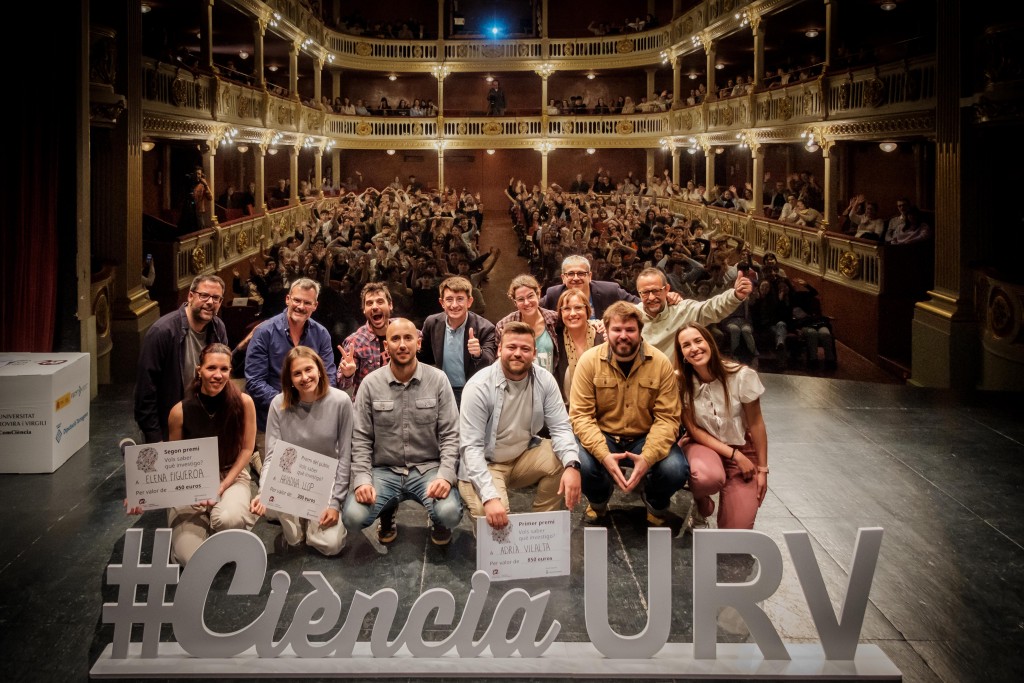
For yet another year, this competition was hosted by the Bartrina theatre, where six doctoral students from the URV explained what they were studying.
Expectation, interest and enthusiasm. This was the atmosphere this morning at the Bartrina theatre in Reus, where more than 400 people – most of them 1st-year students – attended the eleventh edition of the final of the scientific monologue competition “Do you want to know what I research?”. Behind the scenes, the six URV doctoral students were excited and nervous about going on stage to explain, in a maximum of four minutes, their doctoral thesis using language that was understandable to non-experts. The event, presented by the journalist Carles Cortès and with the tongue-in-cheek humour of the company of scientific communicators BigVan Ciencia, finished with the verdict of both the jury and the audience. Adrià Vilalta won the first prize for his monologue “Taste below the mouth” and also the prize for the best monologue in Catalan.
A student on the PhD programme in Nutrition and Metabolism, Adrià Vilalta, stood out for his ability to explain clearly and understandably the function of the bitter taste receptors on the human tongue and throughout the gastrointestinal tract, both in terms of identifying substances that can be toxic to the body and for their positive effects on health.
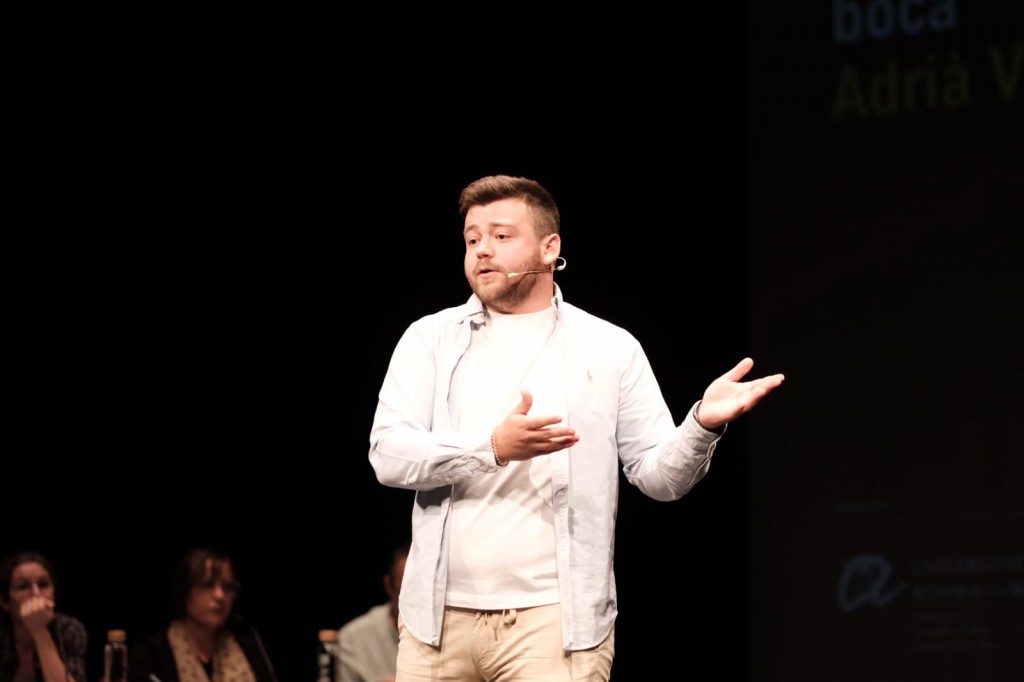
As well as taking home the financial prize today, Vilalta will represent the URV in the Catalan final of the contest “Presenta la teva tesi en 4 minuts”, which the Catalan Foundation for Research and Innovation will organise in Tarragona on 27 June.
The jury, consisted of Carmen Gómez, vice-rector for Doctoral Studies; Jordi Farré, a lecturer of the Department of Communication Studies and Helena González, a member of BigVan Ciència, particularly valued the participants’ communication skills and how they adapted their explanations.
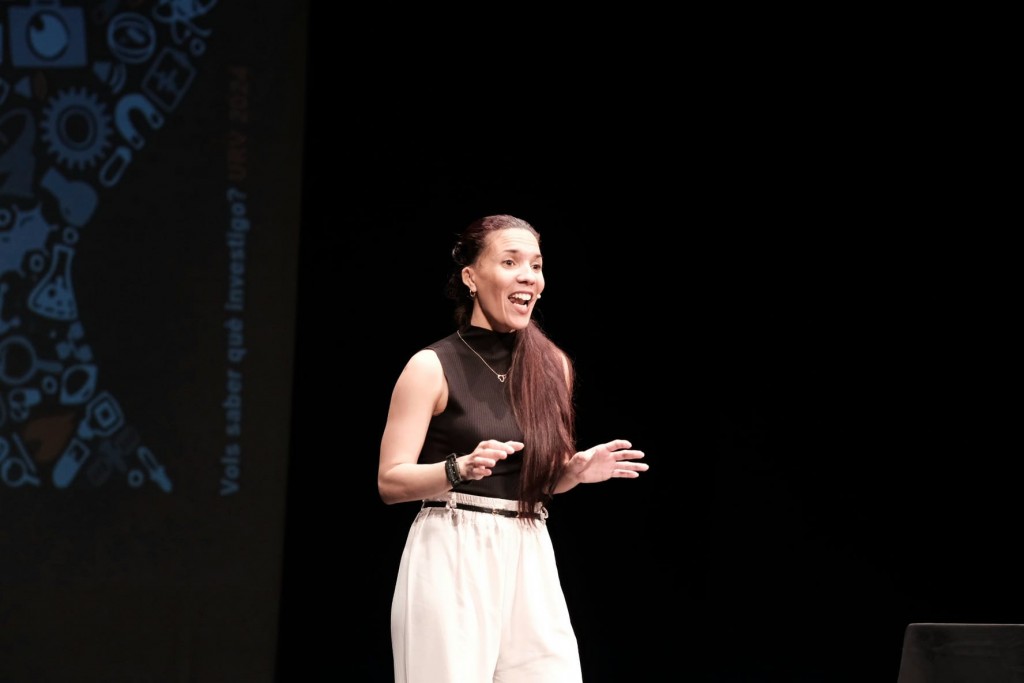
The second prize went to Elena Figueroa, with the monologue “Smart classrooms: immediate future?”, which investigates how to apply communication and information technologies to achieve smarter classrooms. A PhD student on the Computer Science and Mathematics of Security programme, Figueroa focuses her thesis on the effect of using sensors, cameras and devices based on the Internet of Things (IoT) to collect physical data and emotions from students and teachers, analyse them using artificial intelligence and propose measures to improve concentration and motivation in the classroom.
The award was presented by the URV’s vice-rector for Doctoral Studies and CRAIs, and spokesperson for the jury, Carmen Gómez.
One of the novelties of this edition was the award of a new prize for the best monologue in Catalan to encourage research and the communication of its results in this language. This award also went to the monologue “El gust mes avall de la boca”, by Adrià Vilalta and was presented by Jordi de Bofarull, secretary of the URV’s Language Policy Commission.
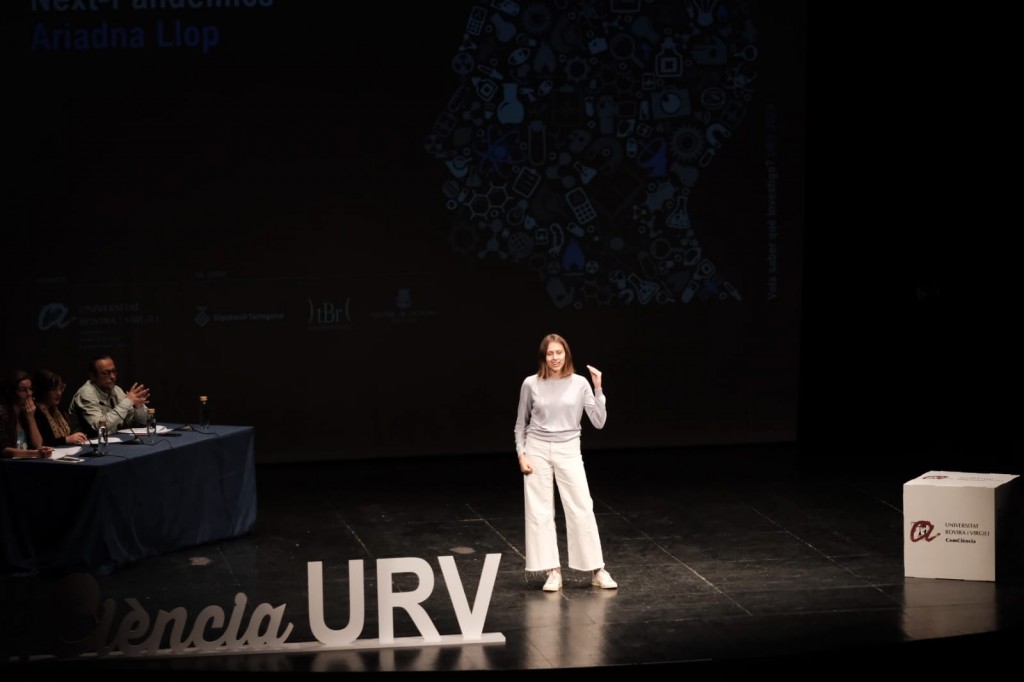
The audience also had the chance to take active part by voting for a prize immediately after the performances. The winner was Ariadna Llop, who spoke about the Next-Pandemics project, which analyses the large quantities of data generated during Covid-19 to generate new computational tools that drive forward the search for medicines in anticipation of future pandemics.
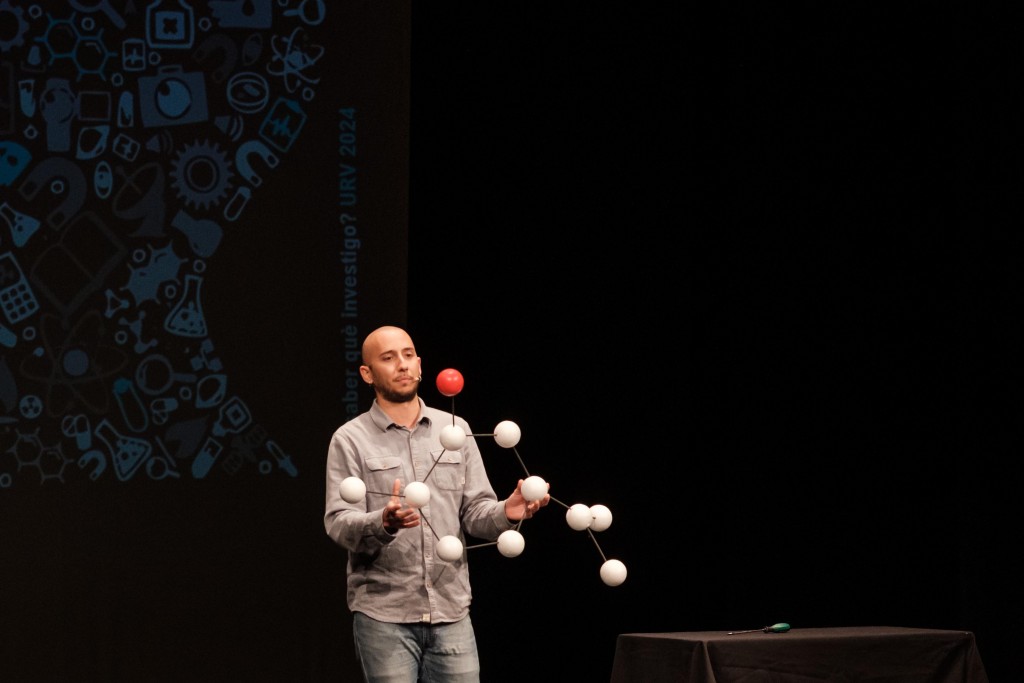
Three other PhD students took part in the competition: Valero Gimeno, who explained what drug manufacturing is all about and how he wants to use his research to create new methodologies that save time and resources in the development of new medicines.
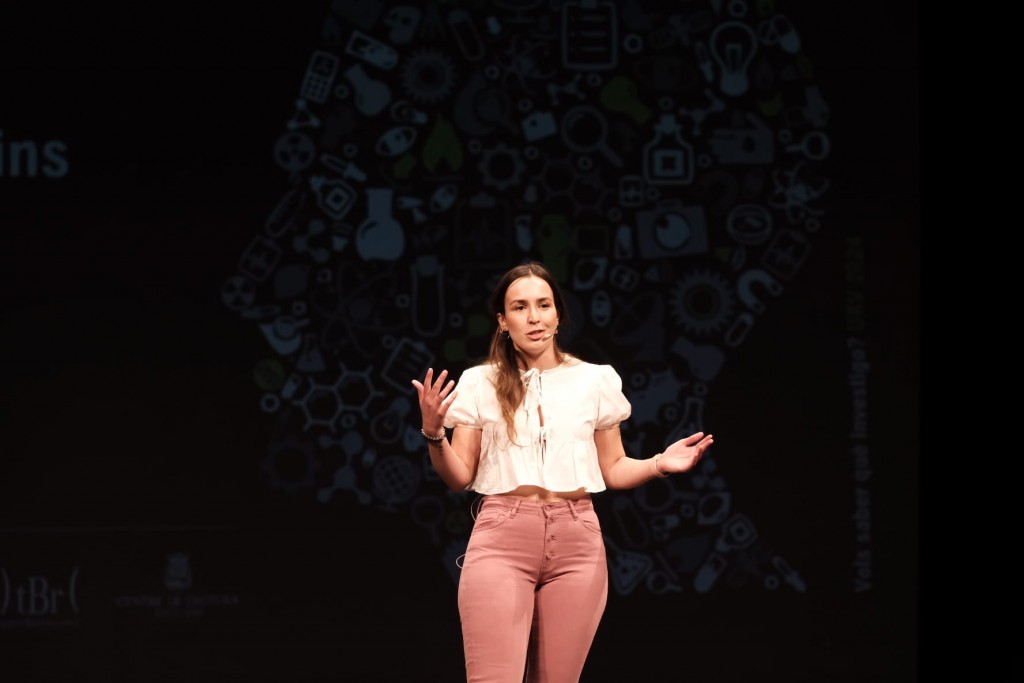
The student of Biomedicine Ana González explained what endocrine disruptors are, which everyday products contain them and what effects they can have on the health of pregnant women and their babies.
The sixth contestant, Arnau Montoya, explained how he analyses the architectural features of the squares where human towers are often constructed. By examining such features as the slope of the ground, the surface, the height of the buildings and other aspects, he has drawn up the first ranking of squares in terms of how difficult they are for human tower building.
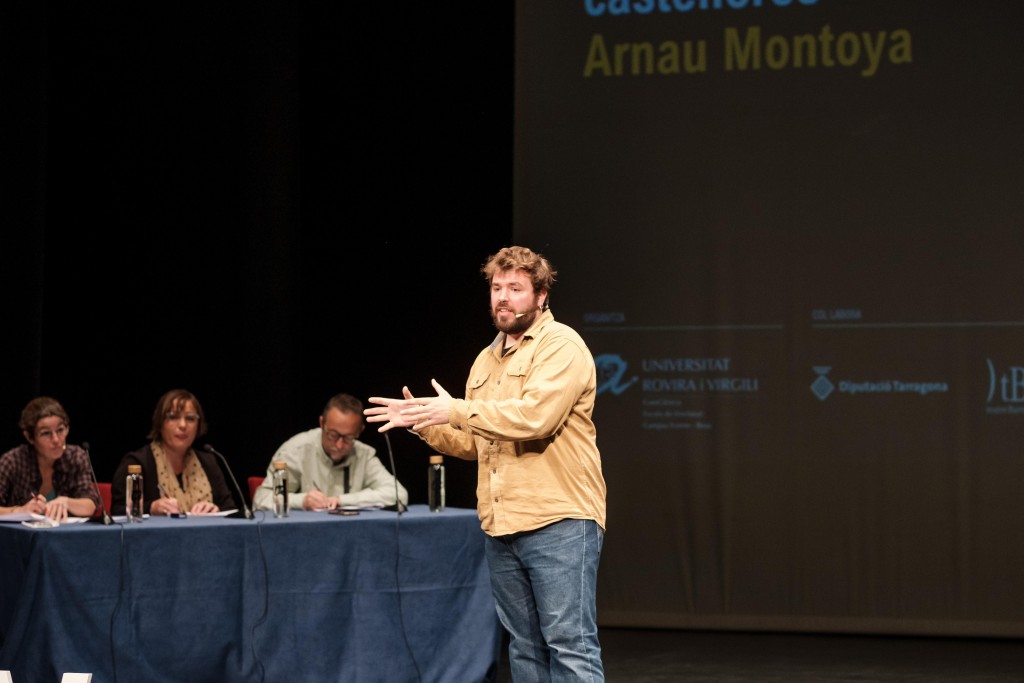
At the end of the event, the rector of the URV, Josep Pallarès, spoke of the importance of asking questions, the starting point of all research careers. And he encouraged the secondary-school students in the audience to come forward as contestants in the coming years.
The scientific monologue competition is promoted and organised by the URV’s Science Communication and Dissemination Unit with the collaboration of the Doctoral School and the University’s Extended Campus. The activity is funded by the Provincial Council of Tarragona and this year was its eleventh edition.
